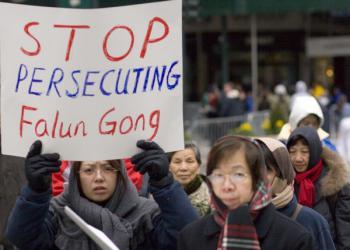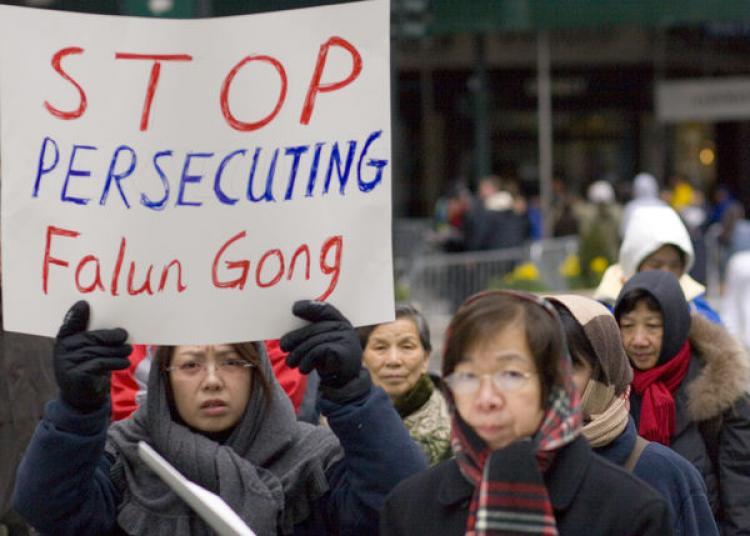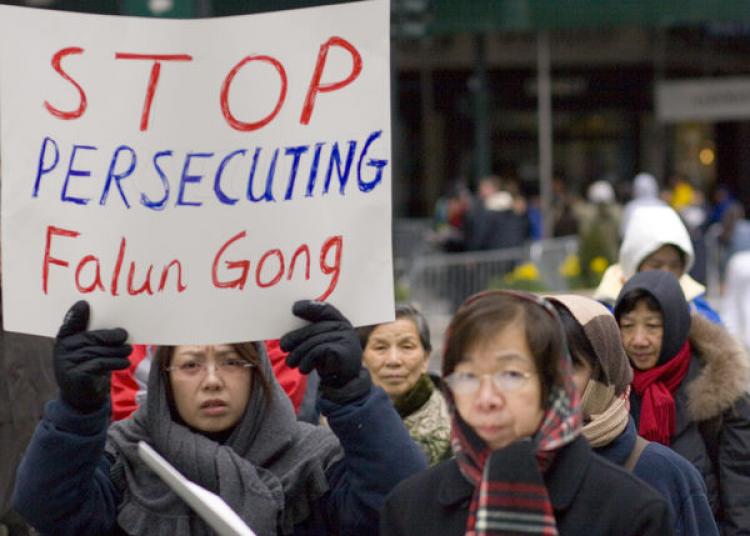While speaking for Google in a recent interview with the Wall Street Journal, company founder Sergey Brin compared the Chinese communist regime to the Soviet Union in which he grew up, “Particularly with respect to censorship, with respect to surveillance of dissidents, I see the same earmarks of totalitarianism, and I find that personally quite troubling.”
According to Brin, his discomfort with the Chinese regime’s censorship was what, in the end, led him to support Google in pulling its search service out of China.
The regime’s systematic censorship of the Internet began in 1998 with a project called Golden Shield or, more popularly, the Great Firewall (GFW). The GFW was constructed just prior to the beginning of the persecution of the spiritual practice of Falun Gong—in July, 1999. Since that persecution began, the Internet has been contested, with the regime seeking to use it to oppress Falun Gong, and Falun Gong seeking to use it to resist oppression.
The most sophisticated Internet censorship mechanism on the planet, GFW has grown in scope and complexity over the past decade plus. It filters a vast array of material that China’s communist regime deems “sensitive.”
Searches that are filtered include keywords related to Tibet, Uyghurs, Inner Mongolia, democracy activists, the Tiananmen Square massacre, Taiwan, and Falun Gong. Searches related to Falun Gong are the most heavily censored.
Associated Press Study
In the wake of Google search’s exit from the Chinese mainland into Hong Kong, the Associated Press reported on March 25 the results of identical keyword searches on google.com.hk and google.cn. The difference in the results was stark.
Notable English search terms, including “Falun Gong,” references to disappeared dissident lawyer Gao Zhisheng, Communist Party chief Hu Jintao, as well as the “June 4 incident” (Tiananmen Square massacre) were blocked in the mainland, rendering browsers searching for them inoperable for over a minute. In Hong Kong, conversely, a Google.com search on “Falun Gong” yields about 849,000 entries.
Unexpectedly, a number of other searches produced identical results in both Beijing and Hong Kong. These include references to the “March 14 incident,” (the 2008 riots in Tibet), both English and Chinese-language searches for “Tibet” and Tibet-related human rights advocacy sites, as well as Taiwan-related searches.
Green Dam
The emphasis the Chinese regime places on blocking information about Falun Gong is evident in the design of the Green Dam software.
Originally introduced in the summer of 2009, Green Dam software was an attempt by the Chinese regime to move censorship mechanisms from the Internet right onto the personal computer. Using a library of keywords, it blocks prohibited searches from going forward.
Researchers at the University of Michigan found that there were two lists of keywords. One list of 2,700 words primarily targeted pornography. The other, a list of 6,500 words was called Falunwords.lib, and 90 percent of the words were related to Falun Gong.
The emphasis given to Falun Gong in the Green Dam software can also be seen in how the Chinese version of the popular communications software, Skype, was used to spy on and filter the messages of users. In September 2008, researcher Nart Villeneuve from the Information Warfare Monitor unit at the University of Toronto discovered that TOM-Skype was conducting surveillance, logging, and partial filtering of sensitive keywords. By far the largest group of messages logged, apart from those containing the words “communist” and “communist party,” were those related to Falun Gong.
Open Net Initiative
Perhaps the most in-depth analysis of China’s Internet filtering is a 2005 report by the Open Net Initiative (ONI). ONI researchers looked at Internet content on China’s most suppressed topics including Falun Gong, the Tiananmen Square massacre, Tibetan independence, criticism of China’s human rights and social justice records, independent media, and pro-democracy/pro-Western commentary.
The researchers found every site that they tested related to Falun Gong was blocked in China.
While in most cases censorship of Chinese-language terms such as “democracy movement” was high, and the corresponding English terms lower, when it came to Falun Gong-related terms “a significant percentage of the English language sites were blocked, in both absolute terms and relative to Chinese language sites.”
The study also found that between 2002 and 2005 the Chinese Communist Party (CCP) generally opened up its censorship, and “Only sites related to the Chinese terms for “Falun Gong” and “Tiananmen Event” were consistently less accessible...”
A Voice On the Internet
While the Chinese regime has done everything in its power to erase any positive image of Falun Gong from China’s Internet, Falun Gong adherents have managed to connect to the outside world and to their fellow countrymen through that same Internet.
Web sites run by Falun Gong adherents provide detailed, often immediate reports on human rights abuses suffered by Falun Gong in China. The ability to rally immediate, worldwide attention to individual cases has at times managed to improve the treatment of those detained or even help lead to their release. In late 2000, Falun Gong practitioners were able to gather support to mobilize Amnesty International and the Canadian Government to rescue Chinese-Canadian sculptor Professor Zhang Kunlun from detention and torture in as little as three months following his imprisonment.
Falun Gong adherents outside China often send mass emails to email addresses inside China that explain what Falun Gong is, of the persecution it is suffering, and of the role played by the Chinese Communist Party. Inside and outside of China, Falun Gong practitioners make use of the very popular chat rooms to have individual conversations about the same topics.
Of perhaps greatest concern to the Chinese regime, Falun Gong adherents working in the Global Internet Freedom Consortium (GIFC) have devised effective and easy ways for people in China to circumvent the Great Firewall. Those who make use of GIFC’s software have access to an uncensored Internet.
Chen Yonglin was the former first secretary of the Chinese Consulate in Sydney, before he defected. According to Chen, “Opposing Falun Gong is the top priority of the Chinese embassy and consulates.”
Chen explained why the Chinese regime is driven to single out Falun Gong inside and outside China.
“The Chinese Communist Party has always relied on violence, lies, and advocating atheism to maintain its power. They could not understand Falun Gong practitioners’ peaceful efforts to protect their freedom of belief,” Chen said. ”Now they feel they can’t let people know about what has been done to Falun Gong in China.”
As the struggle continues to turn the Chinese Internet into an instrument of freedom, people in China are just beginning to get a taste of what that could mean.







